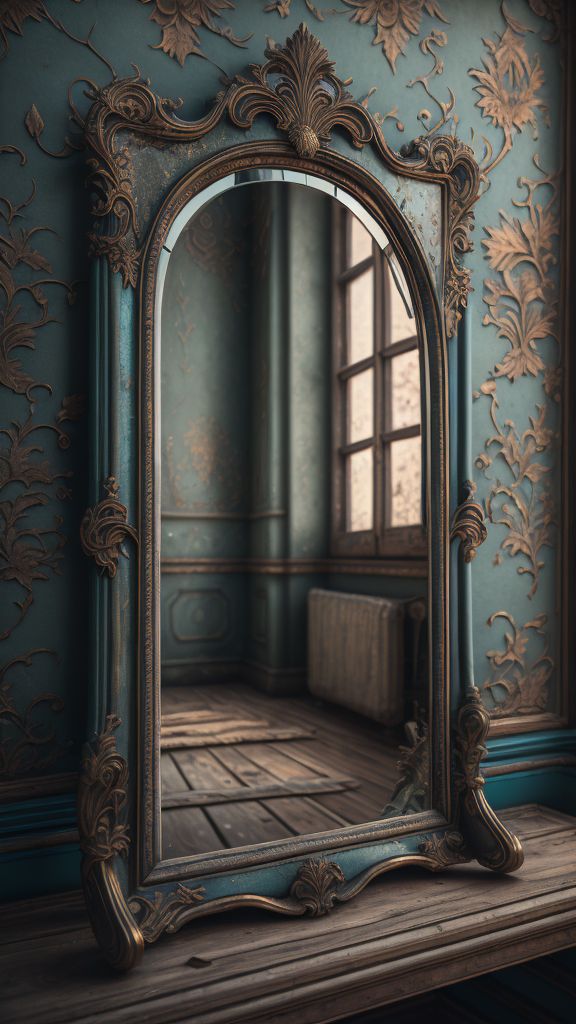
Fred lived alone in a dilapidated house at the edge of town. The paint peeled from the walls, and the windows were clouded with dust and age. Every morning, he sat in his creaky chair by the window, staring out at the world with vacant eyes, convinced that he was nothing but a figment of someone’s imagination.
Fred’s disbelief in his own existence began years ago, after his wife, Martha, died. Grief-stricken, he felt himself unraveling. The familiar touch of reality began to slip through his fingers like sand. He started to see the world through a veil of uncertainty, each moment feeling increasingly unreal.
One night, Fred awoke to the sound of whispers. The house was silent, save for the faint murmurs that seemed to seep from the very walls. He followed the voices, his frail body moving almost mechanically. They led him to the attic, a place he hadn’t visited in years.
The attic was dark and cluttered, filled with relics of a life he could barely remember. In the center of the room stood an antique mirror, its surface tarnished with age. The whispers grew louder as Fred approached the mirror, their unintelligible words echoing in his ears.
He stared into the mirror, expecting to see his own reflection, but instead, he saw a shadowy figure standing behind him. The figure’s eyes were hollow, and its face was a twisted mockery of his own. Fred turned around, heart pounding, but the room was empty. When he looked back at the mirror, the figure was gone, replaced by his reflection, which now seemed to smirk at him with a knowing grin.
“You’re not real,” Fred whispered to himself, clutching his head. “None of this is real.”
Days turned into nights, and Fred’s conviction grew. He began to doubt everything—the solidity of the floor beneath his feet, the air he breathed, the food he ate. Reality felt like a thin veneer, fragile and easily shattered.
One stormy night, Fred found himself drawn to the mirror again. The whispers returned, louder and more insistent. As lightning flashed outside, illuminating the attic in stark white light, Fred saw the shadowy figure once more. This time, it was clearer, more defined. It reached out a hand, beckoning him closer.
With trembling hands, Fred touched the mirror’s surface. It felt cold, unnaturally so. The glass rippled like water, and before he could pull away, the shadowy figure grabbed his hand and yanked him into the mirror.
Fred fell through a void of darkness, his screams swallowed by the abyss. When he opened his eyes, he was standing in a distorted version of his own house. Everything was wrong—the angles were crooked, the colors were muted, and the air felt heavy with malevolence.
He realized with dawning horror that he was no longer in his world. He was trapped in the mirror, a prisoner of his own disbelief. The shadowy figure, now more solid and real than Fred ever felt, stood on the other side, looking out with Fred’s own eyes.
Fred pounded on the glass, but no one could hear his screams. The shadowy figure turned away, leaving Fred to his fate. He was now a ghost, a figment of a forgotten reality, forever questioning his own existence in the mirrored purgatory.
And in the real world, the shadowy figure lived on, wearing Fred’s face, convinced of its own reality, while Fred faded into the depths of the unreal.
